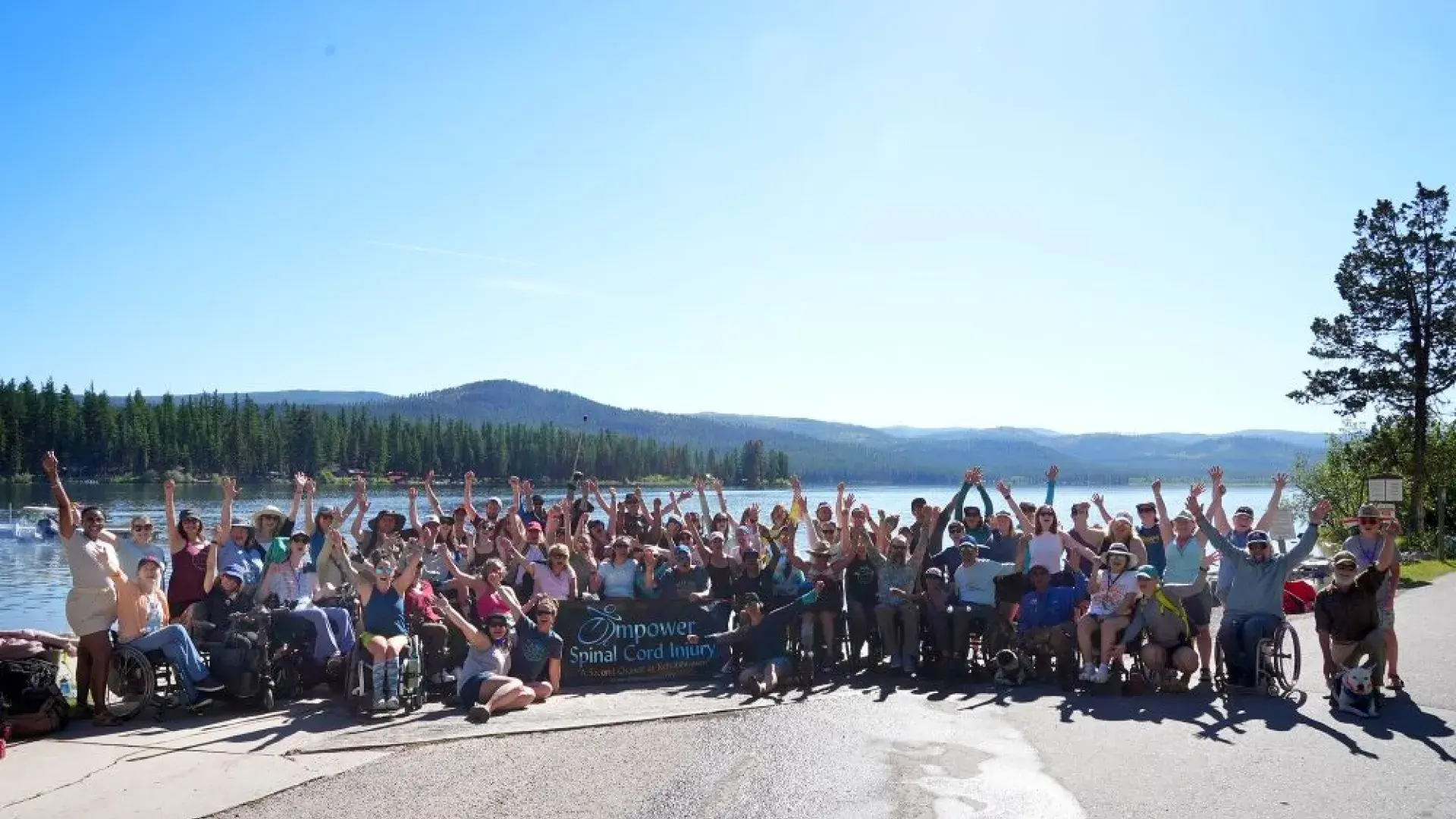
Assistant Professor Kelly Spellman spent a week in Montana working at a residential program for people with spinal cord injuries
Like many people, Kelly Spellman went away for a week this summer. Unlike most others though, her week away wasn’t a break from work.
Spellman, an assistant professor in the MGH Institute’s occupational therapy entry-level doctoral program, volunteered with Empower SCI, a residential program that aims to help people with injuries to their spinal cord live more fully actualized and independent lives. She has worked with the program at one of its locations almost every summer since it was started in 2012 by an occupational therapist and two physical therapists, one of whom was a colleague of Spellman’s at Spaulding Rehabilitation Hospital at the time.
Spellman calls the program a “second chance at rehabilitation.” Because the participants have had their spinal cord injuries for at least a year before attending, they have more of an understanding of what it’s like to live with the injury and are no longer healing from other injuries they may have had in their initial rehabilitation stints.
In that first year, Spellman saw what a difference the program made in the lives of the attendees.
“Having worked in acute rehab for a long time at that point, it was amazing to me how much change we saw in our participants in just one week,” explains Spellman. “Being at a different point in their recovery, they were so much more ready to make changes in their lives.”
This past summer, she traveled to Missoula, Montana, to serve as a clinical expert. That role involves working one-on-one with participants to set their goals and work on the skills that the person needs to achieve those goals.
“This year, several people were looking toward moving out and living independently, so we worked on a lot of independent living skills like cooking and laundry,” Spellman shared. “We practiced using different pieces of adaptive equipment and I helped them locate available resources in the areas they lived.”
In addition to the one-on-one work, she led a sex education group and several group activities. That included an adaptive swimming day which focused on water safety so the participants could take part in some boating activities later in the week and feel safe and confident that they could right themselves in the water if necessary; and an adaptive cooking group using adaptive equipment from MonTech, Montana’s adaptive technology lending program. She also mentored occupational therapists and physical therapists who were new to the program and didn’t have much experience with that model of care so they could understand appropriate goal setting and how they would work together.
This year, for the first time, Spellman was able to bring an MGH Institute student, Sarah Kunkel, with her to the program.
“Many of the participants who come to the program need a significant amount of care,” said Spellman. “Sarah was a residential aide, providing that care to the participants and taking part in the activities with them. The involvement of residential aides in all of our activities really creates a tight-knit community, and it was just really exciting for me to see an IHP student in that role.”
Spellman thinks the experience will be valuable to all of the residential aides.
“Those OT, PT, and nursing students are working with clients outside of what their typical role would be as a healthcare provider, she said. “They don’t typically see patients living a full day’s life as they would in the community. It has certainly changed my perspective on what is important to my clients because I’ve seen the way that the things I teach them are going to play out in the real world.”
Students like Kunkel also learn more about what the other disciplines focus on with their clients by taking part in the one-on-one sessions like those that Spellman has with the clients. As an example, Spellman said, “Maybe a client has a goal of using a different kind of adaptive utensil that they want to try out, but I am not going to be with that person later in the day when they are eating lunch. If the residential aide for that person is a PT student, they may be able to practice with them and gain a shared knowledge and a greater understanding of what each discipline is doing to help that person.”
The students and the participants are not the only ones who benefit from the experience. One of the main reasons Spellman keeps going back year after year is the people who take part, both as participants and healthcare professionals.
“You’re spending time with wonderful people,” revealed Spellman. “The type of person who would give up a week of their vacation at their job to essentially do their job in a different setting, tends to be really wonderful.
“Then, the type of person that would take on a big scary journey to travel across the country for the first time with a disability to go meet a new group of people tends to be great to work with,” she adds. “It is also really fulfilling, and it shows me the potential of what occupational therapists can do for our clients.”
Do you have a story the Office of Strategic Communications should know about? If so, let us know.
